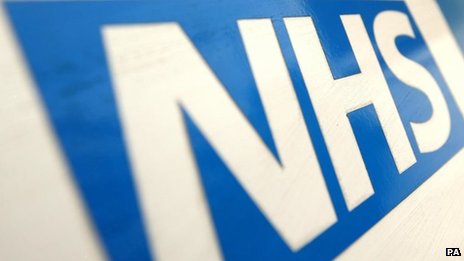
Coffee shops may not be a conventional model for NHS care.
But in this week’s Scrubbing Up, Dr Johnny Marshall – a GP and director of policy at the NHS Confederation, says their customer care could be an example worth following.
Alongside the menu of lattes, frappes and plain old filtered brew, a sign in my local coffee shop informs customers that if the drink you receive isn’t perfect, the barista will make it again for you free of charge.
The one time I did politely complain, my lukewarm coffee was replaced with a piping hot one in a flash. I didn’t have to make a fuss and left as a very satisfied customer.
My experience clearly demonstrated to me two things: the shop values customer satisfaction above all else, and that it is so sure it delivers a high quality customer experience, it is happy to put its money where its mouth is.
Complain more
So could GP surgeries do the same?
Now I’m not suggesting that your GP amends his or her clinical opinion until it fits with what you would prefer to hear – that wouldn’t serve anybody well.
But publicly and permanently showing that feedback is welcomed on any and every aspect of the patient’s experience is something I think the NHS should do much more of.
In fact, I think we should be encouraging patients to complain much more.
“
In my opinion, GPs offer patients the chance to make far more important decisions about their lives than whether to buy a biscuit to accompany their coffee.”
Patients who raise concerns are a very good thing – they empower themselves, they improve the care they receive, and they drive up standards of clinical care and patient experience across the service.
But how do patients know what to complain about?
Everyone knows if they’ve spent too long trying to get through by phone to their local surgery, or if they are spoken to by a member of practice staff in an impolite or patronising way.
Obviously neither is acceptable, and patients should feel able to say so and to have the problem looked into.
Customer experience
But when it comes to clinical advice and treatment, how do patients know what the optimal standard of care looks, sounds and feels like?
The NHS Constitution sets out what patients can expect from their NHS as a minimum, including maximum waiting times and basic rights. But if we only focus on the standards below which care or services must not fall, we are not aiming high enough.
We should start describing to patients what high quality care looks like, and encouraging them to question us if they get less than this.
It demands the best of us – which is what our patients deserve.

Involving patients in choices about their care is key
We can start by ensuring our patients better understand the full range of clinical options available to them.
When you enter a branch of Starbucks or other high-street chain, you can order a coffee in about two dozen different formats, choosing everything from the type of coffee bean to the amount of foam you want to sip it through.
Customers are likely – subconsciously, maybe – to make a choice based on a host of factors, perhaps taking account of the time of day they are making a purchase, and whether they’ve got time to savour it or are “on the hoof”, as well as personal taste.
For a patient with a condition like stable angina, there are a wide range of possible treatments, from relaxation techniques, through tablets and sprays to stents or a bypass.
During the initial assessment it is possible to determine those people for whom treatment is life prolonging (the minority) and those people for whom it is symptom relieving (the majority).
‘Empower patients’
To make his or her “customer experience” exceptional, each patient needs to understand the full range of possibilities, including their advantages and their risks, and then to receive support to help them decide the best option for their circumstances.
“
GPs offer patients the chance to make far more important decisions about their lives than whether to buy a biscuit to accompany their coffee”
This requires GPs and other healthcare professionals to better understand what the patient wants, in the same way that salespeople seek to understand what you are looking for from a new outfit, an electronic device or a present for a loved one.
Then they can best assist you in making an informed decision about the options available to you to achieve what you really want.
Sales-people and retail designers know the importance of creating an environment in which customers feel able to make decisions regarding their purchases.
In my opinion, GPs offer patients the chance to make far more important decisions about their lives than whether to buy a biscuit to accompany their coffee.
It is time for us to empower patients like the retail industry does, put them in control and encourage them to complain if we don’t get it right, so we’ve got a chance to put things straight immediately.
Patients will benefit, the health service will benefit and so will the reputation of GPs.
via BBC News – How the NHS could learn from coffee shops.





